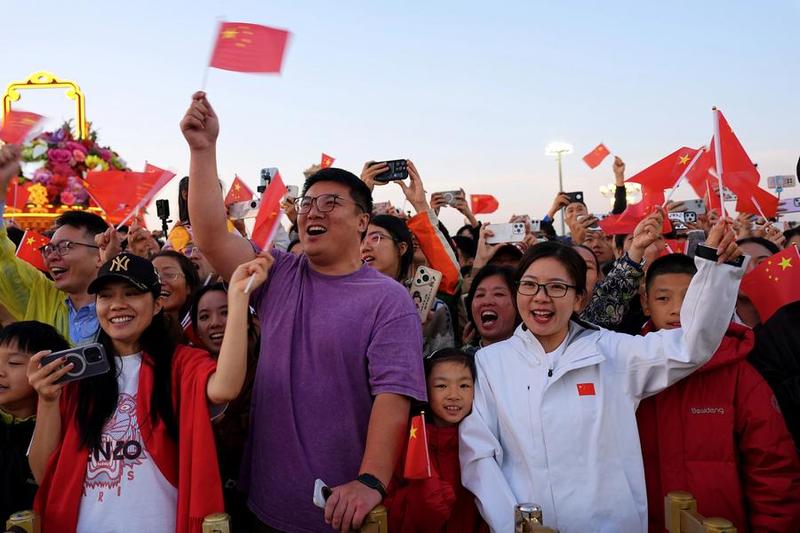Will transform how governments think about growth, lift revenue

As China prepares its next five-year economic blueprint, economists widely expect the world's second-largest economy to start relocating the point of collection of its largest single source of tax revenue from where products and services are made now to where they are bought and consumed.
The potential shift in value-added tax collection during its upcoming 15th Five-Year Plan period (2026-30) could transform how local governments think about growth, shifting their focus from building massive factories to fostering vibrant consumer markets, and accelerate Beijing's transition to a consumption-led economy, they said.
They made the remarks in the lead-up to the fourth plenary session of the 20th Communist Party of China Central Committee, to be held from Monday to Thursday, when the country's policymakers will gather to map out social and economic development over the next half decade.
READ MORE: China's holiday consumption showcases economic vitality, innovation
"The current VAT system rewards production locations, not consumption hubs," Qiao Baoyun, professor of the China Academy of Public Finance and Policy at the Beijing-based Central University of Finance and Economics, told China Daily in an exclusive interview.
In this context, Qiao said local governments, in pursuit of tax revenue, have a strong incentive to encourage businesses to set up factories and engage in production in their jurisdiction.
Last year, China's VAT revenue came in at 6.67 trillion yuan ($935.6 billion), accounting for over 38 percent of the country's total tax collection, said the Ministry of Finance.
Local governments, eager for economic growth and tax revenue, aggressively court the same favored industries with favorable policies. The result, which is evident in photovoltaic manufacturing over the past years, is a dangerous cycle of redundant construction, vicious internal competition, and ultimately, some oversupply situations.
The existing system, with a heavy reliance on taxes levied on industrial production, has been a cornerstone of China's rapid, investment-led growth model over the past decades. However, as the economy seeks more sustainable, consumption-driven expansion, this model has begun to lose its luster.
Rebalancing China's economy away from investment and exports and toward household consumption has been the stated priority of China's leadership ever since the 2024 Central Economic Work Conference.
"If the collection of VAT were anchored to consumption, the mindset of decision-making for local governments would change dramatically," said Luo Zhiheng, chief economist and president of the Research Institute at Yuekai Securities.
The consumption-based model would create what Luo described as a "self-correcting mechanism "for resource allocation. Regions would compete to attract consumers and boost local spending power rather than offering incentives to manufacturers, Luo added.
Wang Qing, chief macroeconomic analyst at Golden Credit Rating International, said that by creating all these fiscal incentives that reward consumption-friendly policies, the central government aims to stimulate a virtuous cycle where improved commercial environments boost consumer confidence, driving further spending and economic activity.
China's planned restructuring of its VAT system will follow a carefully calibrated implementation timeline, with initial trials likely focused on sectors with more ideal conditions, analysts said.
ALSO READ: China's VAT data shows growing spending on equipment renewals by firms
"In the past, collection of VAT at checkout counters posed challenges due to limited administrative capacity. However, the situation has evolved now. With enhanced data tracking and big data processing capabilities, what was once infeasible is now increasingly achievable," Qiao said, adding that the potential VAT reform could begin with sectors with sound digital tracking systems, and concentrated distribution channels, such as refined oil.
In September, Vice-Minister of Finance Liao Min said at a news conference that China has established a comprehensive implementation plan for deepening its fiscal and taxation reforms and will adopt a measured, step-by-step approach to their rollout, proceeding as conditions permit for each individual policy measure.
This year's Government Work Report prioritized shifting the point of charging certain consumption tax from manufacturers to wholesalers and retailers at a faster pace. Meanwhile, local administrations will gradually be allowed to retain more of the consumption tax, which is currently collected by the central government.
Contact the writers at wangkeju@chinadaily.com.cn


